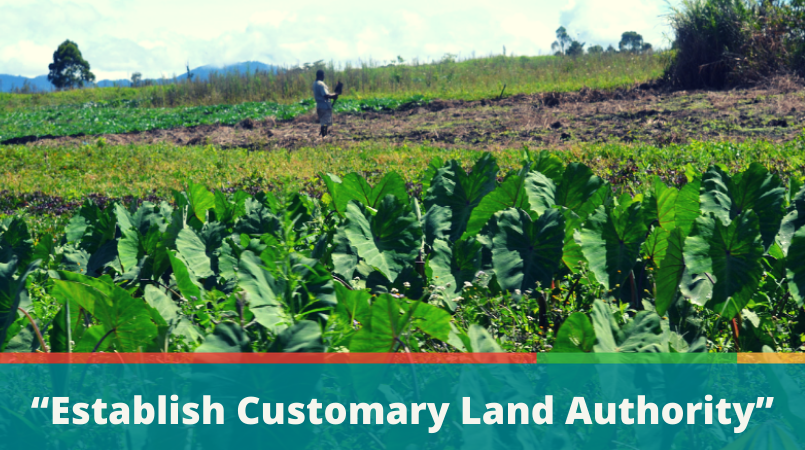
A Research Fellow with PNG National Research Institute (PNGNRI) has urged the Government to consider a Customary Land entity for the administration of customary land.
The PNG National Research Institute’s recent publication of ‘The Spotlight: Establishment of an entity to administer customary land in PNG should be considered Volume 14, Issue 19’ by Research Fellow, Logea Nao.
He presents the case for the government to consider establishing an entity specifically for the administration of customary land.
The administration of customary land refers to the registration, documentation and titling of land, transfer of title, storage and management of title and transaction records, the planning and use of land, and the provision of land information.
The Department of Lands and Physical Planning (DLPP) currently do the function of customary land administration. Customary land administration in the country has experienced various challenges since amendments were made in 2009 to the Land Groups Incorporation Act 1974 and the Land Registration Act 1981.
The two amended legislations - Land Groups Incorporation (Amendment) Act 2009 and the Land Registration (Amendment) Act 2009, were aimed at facilitating the mobilization and administration of customary land.
Challenges in the administration of customary land includes:
- Costly and cumbersome process of land registration via Voluntary Customary Land Registration (VCLR),
- Long and protracted disputes over ownership and boundaries of customary land that delay registration and titling of land, and
- Questions around the capacity of DLPP to administer customary land given their current inefficiencies to administer State land (Kwapena et al., 2021).
Mr Nau said the new entity could take the form of an authority, that is, the Customary Land Authority (CLA). They will be responsible for the administration of customary land.
He said its role will be to provide oversight and quality control as well as manage the policy issues relating to customary land at the national level.
Several interventions can be made as either contributing to the setup of the new authority or complementing the same. These include the following:
- Re-organize customary land divisions within DLPP
- Setup the Office of Customary Land Development
- Preparatory legal and policy work for customary land
- Decentralize customary land administration functions to the provinces
- Set up an electronic-based title record and management system outside of the CLA
- Improve efficiency in land administration within DLPP.
The study by Kwapena et al. (2021) based on interviews conducted in Port Moresby with informants from key government agencies and officials of commercial banks found that views on having a separate customary land agency varied among participants.
Interviewees from the government agencies opined that an independent agency responsible solely for the administration of customary land would improve the administration and governance of customary land.
However, interviewees from the private organizations disagreed and added that having a separate office may not be feasible, as it could potentially face similar integrity and accountability issues experienced by DLPP (Kwapena et al., 2021).
The article highlights that it is critical to define the roles and responsibilities to be retained at the national level and those to be decentralized to the subnational level.
It also promote security of customary land titles and derived leases through the set-up of an electronic-based title record and management system based outside of the proposed entity.
The views expressed in the article will assist policymakers and legislators in decisions related to the role of customary land in triggering sustainable and broad-based economic growth.
The publication and media release can be accessed on the PNG NRI website https://www.pngnri.org.
